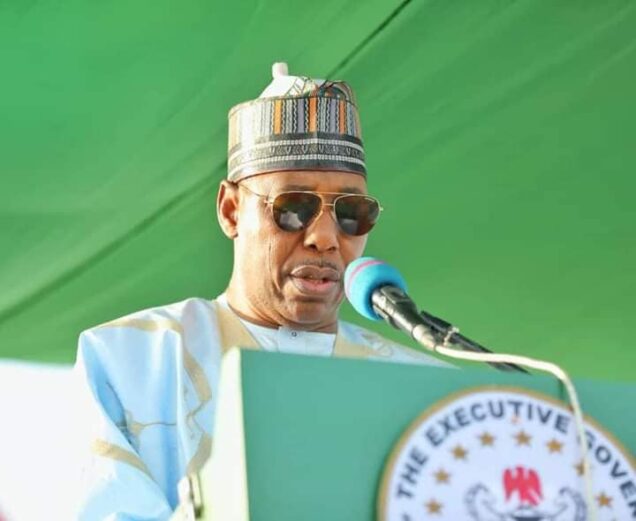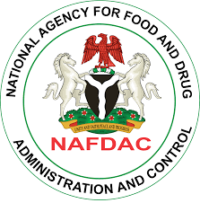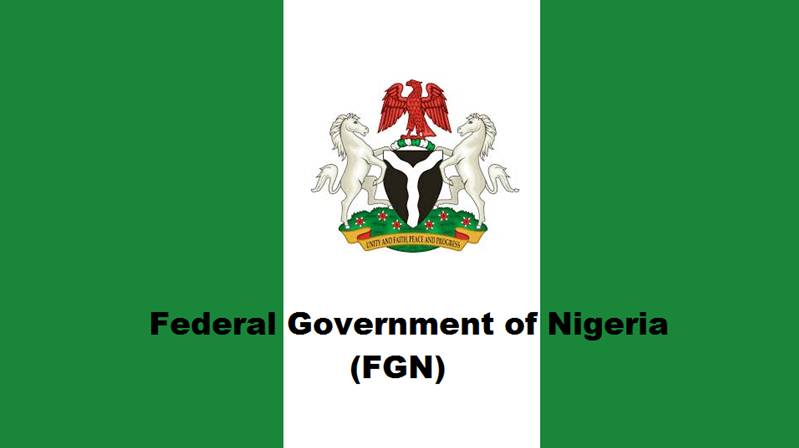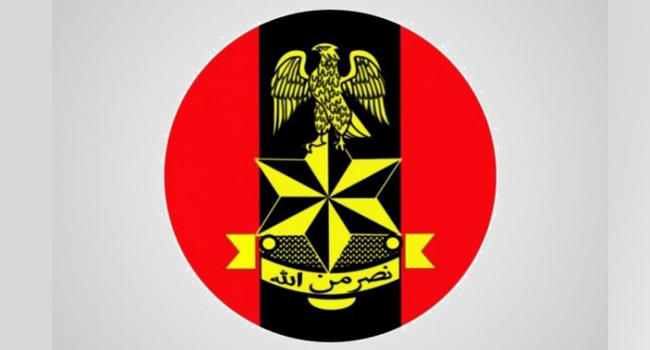Headlines
Nigeria receives a $200 million loan from the World Bank to help fight malaria.

By Derrick Bangura
The National Malaria Elimination Programme on Tuesday said the World Bank was providing $200 million loan to fund malaria intervention programme in 13 states of the Federation.
The National Coordinator of the Programme, Dr. Perpetua Unomoibni said the loan provided by the World Bank was to take care of anti-malaria efforts in the 13 states not covered by similar intervention programme being implemented in other 23 states.
Speaking during a ministerial press briefing at the Federal Ministry of Health in Abuja, the Coordinator said there are two components of the World Bank loan for Nigeria – the one for malaria and that of immunisation plus which is under the National Primary HealthCare Development Agency.
“We got $200 million from the World Bank to cover malaria Intervention across 13 states. There is also a $100 million from the Islamic Bank. These are states that were not earlier covered by funding from the Global Fund Out of this amount, $10 million is grant while $90 million is loan,” she said.
Speaking on efforts to reduce malaria disease in the country, Unomoibni said the programme was implementing environmental management initiative in collaboration with the Nigeria Space Research Agency (NASDA), “to identify some of water bodies where we have malaria hot spots in the country.”
She also said the programme was working with various line ministries such the Ministry of Environment, Agriculture and Education in carrying out malaria research.
According to her tackling malaria scourge requires a multi sectoral collaboration.
Meanwhile, the World Health Organisation (WHO) on Tuesday revealed that none of the African countries has been able to meet the COVID-19 vaccination target of 40 per cent eligible population. It revealed that only 18.7 per cent of the Africa’s population had been fully vaccinated.
The latest update on Covid-19 vaccination came just as Nigeria’s Minister of Health Dr. Osagie Ehanire said experts from the country recently completed a technology training programme on vaccine production that held in South Africa.
Speaking on this year’s theme: “Long Life for All”, WHO Regional Director for Africa, Dr. Matshidiso Moeti said tens of millions of people were still missing out on some, or all, their scheduled immunisation against diseases that have long been eradicated by vaccines.
“Although 480 million COVID-19 vaccines have been administered in Africa to date, making it the biggest vaccine rollout in the history of the continent, only 18.7 per cent of the African population is fully vaccinated – lagging woefully behind the global average of 58 per cent,” she said.
Moeti said more than a year into the COVID-19 global vaccine rollout, Africa had been benefiting from the speedy, efficient development of vaccines to curb the virus.
According to her, there are currently ten COVID-19 vaccines available through the COVAX Facility, with more in the research and development pipeline.
Moeti said that WHO, together with Gavi, the Vaccine Alliance, UNICEF, World Bank, the United States Centres for Disease Control and Prevention, and the Africa Centers for Disease Control and Prevention, has identified 20 priority countries in the WHO African Region for intensified support.
He added that multi-partner country support teams are currently on the ground helping countries with technical and financial resources to ramp up overall and high-priority group COVID-19 vaccination coverage.
“As we work to accelerate COVID-19 vaccination efforts, it is critical that we don’t ignore the urgent need to also strengthen routine immunisation efforts.
“Since 2020, routine immunisation has been negatively impacted by COVID-19 containment measures, leading to tens of millions of infants in Africa missing out on essential childhood vaccinations. These include the Diphtheria, Tetanus toxoid and Pertussis (whooping cough)-containing vaccine, as well as the measles vaccine.
“As WHO in Africa, we urge all countries to ramp up routine immunisation and COVID-19 vaccination efforts concurrently, allocating the necessary resources. Maintaining routine immunisation services, despite the shift of resources to fight the COVID-19 pandemic in the past two years, is more cost-effective, and will lead to longer life for all,” she said.
Ehanire who briefed journalists on the update on COVID19 intervention efforts said that federal government was following up on the plan to revamp the local vaccine manufacturing capacity.
He said: “Nigeria recently completed training on COVID-19 vaccine production technology by WHO in South Africa and work is currently going on at the BioVaccine company.
“We are looking at working with two platforms, because of our population. We have to have these preparations made by identifying the vaccine production capacity that we can use to start off other production platform to be able to produce multiple types of vaccines.
“There are many disease patterns in our country which we need to be able to take care of such as TB, malaria and other endemic diseases and these should have vaccines. So the research components have to be included.”
The minister added that the country was working in collaboration with some research organisations outside the country for not only producing COVID-19 vaccine, but learning the capacity to produce any other type of vaccines that can be used to deal with some indigenous and tropical neglected diseases.
Headlines
Noble Ladies Champion Women’s Financial Independence at Grand Inauguration in Abuja

Women from diverse backgrounds across Nigeria and beyond gathered at the Art and Culture Auditorium, Abuja, for the inauguration and convention of the Noble Ladies Association. The event, led by the association’s Founder and “visionary and polished Queen Mother,” Mrs. Margaret Chigozie Mkpuma, was a colourful display of feminine elegance, empowerment, and ambition.
The highly anticipated gathering, attended by over 700 members and counting, reflected the association’s mission to help women realise their potential while shifting mindsets away from dependency and over-glamorization of the ‘white collar job.’ According to the group, progress can be better achieved through innovation and creativity. “When a woman is able to earn and blossom on her own she has no reason to look at herself as a second fiddle,” the association stated.
One of the association’s standout initiatives is its women-only investment platform, which currently offers a minimum entry of ₦100,000 with a return of ₦130,000 over 30 days—an interest rate of 30 percent. Some members invest as much as ₦1 million, enjoying the same return rate. Mrs. Mkpuma explained that the scheme focuses on women because “women bear the greater brunt of poverty” and the platform seeks “to offer equity in the absence of economic equality.”
Education is also central to the Noble Ladies’ mission, regardless of age. Their mantra, “start again from where you stopped,” encourages women to return to school or upgrade their skills at any stage in life. The association believes that financial stability is vital in protecting women from cultural practices that dispossess widows of their late husbands’ assets, while also enabling them to raise morally and socially grounded families.
Founded on the vision of enhancing women’s skills and achieving financial stability, the association rests on a value system that discourages pity and promotes purpose. “You have a purpose and you build on that purpose to achieve great potentials and emancipation,” Mrs. Mkpuma said.
A criminologist by training and entrepreneur by practice, she cautions against idleness while waiting for formal employment. “There are billions in the informal and non-formal sectors waiting to be made,” she said, rejecting the “new normal of begging” and urging people to “be more introspective to find their purpose in life and hold on to it.”
Mrs. Mkpuma’s management style keeps members actively engaged, focusing on vocational skills and training to prepare them for competitive markets. She is exploring “innovative integration of uncommon technologies” and is already in talks with international franchises to invest in Nigeria, with Noble Ladies as first beneficiaries.
The association’s core values include mutual respect, innovation, forward-thinking, equal opportunity, and financial emancipation. With plans underway to establish a secretariat in the heart of Abuja, the group aims to expand its impact.
The event drew high-profile guests, including former Inspector General of Police, Mike Okiro, and a host of VIPs, marking a significant milestone in the association’s drive for women’s empowerment.
Headlines
NEPZA, FCT agree to create world-class FTZ environment

The Nigeria Export Processing Zones Authority (NEPZA) has stepped in to resolve the dispute between the Federal Capital Territory Administration and the Abuja Technology Village (ATV), a licensed Free Trade Zone, over the potential revocation of the zone’s land title.
Dr. Olufemi Ogunyemi, the Managing Director of NEPZA, urged ATV operators and investors to withdraw the lawsuit filed against the FCT administration immediately to facilitate a roundtable negotiation.
Dr. Ogunyemi delivered the charge during a courtesy visit to the Minister of the Federal Capital Territory, Barrister Nyesom Wike, on Thursday in Abuja.
You will recall that the ATV operators responded to the revocation notice issued by the FCT administration with a lawsuit.
Dr. Ogunyemi stated that the continued support for the growth of the Free Trade Zones Scheme would benefit the nation’s economy and the FCT’s development, emphasizing that the FCT administration recognized the scheme’s potential to accelerate industrialisation.
Dr. Ogunyemi, also the Chief Executive Officer of NEPZA, expressed his delight at the steps taken by the FCT minister to expand the economic frontier of the FCT through the proposed Abuja City Walk (ACW) project.
Dr. Ogunyemi further explained that the Authority was preparing to assess all the 63 licensed Free Trade Zones across the country with the view to vetting their functionality and contributions to the nation’s Foreign Direct Investment and export drives.
“I have come to discuss with His Excellency, the Minister of the Federal Capital Territory on the importance of supporting the ATV to succeed while also promoting the development of the Abuja City Walk project. We must work together to achieve this for the good of our nation,” he said.
On his part, the FCT Minister reiterated his unflinching determination to work towards President Bola Ahmed Tinubu’s Renewed Hope Agenda by bringing FDI to the FCT.
“We must fulfil Mr. President’s promises regarding industrialization, trade, and investment. In this context, the FCT will collaborate with NEPZA to review the future of ATV, a zone that was sponsored and supported by the FCT administration,” Wike said.
Barrister Wike also said that efforts were underway to fast-track the industrialisation process of the territory with the construction of the Abuja City Walk.
The minister further said the Abuja City Walk project was planned to cover over 200 hectares in the Abuja Technology Village corridor along Airport Road.
According to him, the business ecosystem aimed to create a lively, mixed-use urban center with residential, commercial, retail, hospitality, medical, and institutional facilities.
He added that the ACW would turn out to be a high-definition and world-class project that would give this administration’s Renewed Hope Agenda true meaning in the North-Central Region of the country.
Barrister Wike also indicated his continued pursuit of land and property owners who failed to fulfil their obligations to the FCT in his determination to develop the territory.
Headlines
Benue IDPs block highway, demand return to ancestral homes

Vehicular movement along the Yelwata axis of the Benue–Nasarawa highway was brought to a standstill on Wednesday as Internally Displaced Persons, IDPs, staged a protest, demanding immediate return to their ancestral homes.
The protesters, believed to be victims of persistent attacks by suspected herdsmen, blocked both lanes of the busy highway for several hours, chanting “We want to go back home”.
The protest caused disruption, leaving hundreds of motorists and passengers stranded.
Eyewitnesses said the displaced persons, many of whom have spent years in overcrowded IDP camps, are expressing deep frustration over the government’s delay in restoring security to their communities.
“We have suffered enough. We want to return to our homes and farms,” one of the protesters told reporters at the scene.
Security personnel were reportedly deployed to monitor the situation and prevent any escalation, though tensions remained high as of press time.
Efforts to reach the Benue State Emergency Management Agency, SEMA, and other relevant authorities for comment were unsuccessful.
-

 Headlines4 years ago
Headlines4 years agoFacebook, Instagram Temporarily Allow Posts on Ukraine War Calling for Violence Against Invading Russians or Putin’s Death
-

 Headlines4 years ago
Headlines4 years agoNigeria, Other West African Countries Facing Worst Food Crisis in 10 Years, Aid Groups Say
-

 Foreign4 years ago
Foreign4 years agoNew York Consulate installs machines for 10-year passport
-

 News1 year ago
News1 year agoZero Trust Architecture in a Remote World: Securing the New Normal
-

 Entertainment3 years ago
Entertainment3 years agoPhyna emerges winner of Big Brother Naija Season 7
-

 Headlines2 years ago
Headlines2 years agoNigeria Customs modernisation project to check extortion of traders
-

 Entertainment2 years ago
Entertainment2 years agoMovie download platform, Netnaija, announces closure
-

 Economy2 years ago
Economy2 years agoWe generated N30.2 bn revenue in three months – Kano NCS Comptroller














